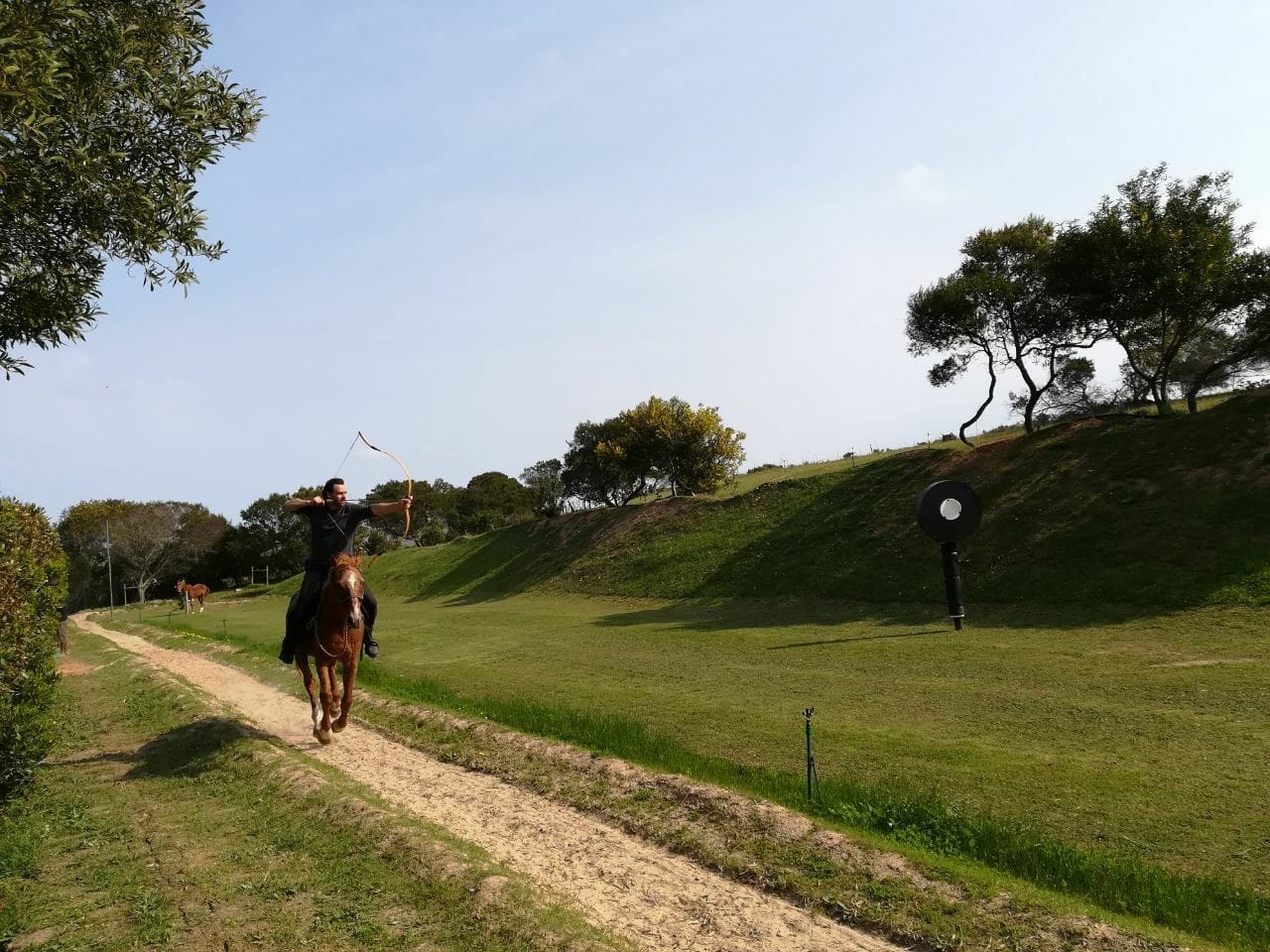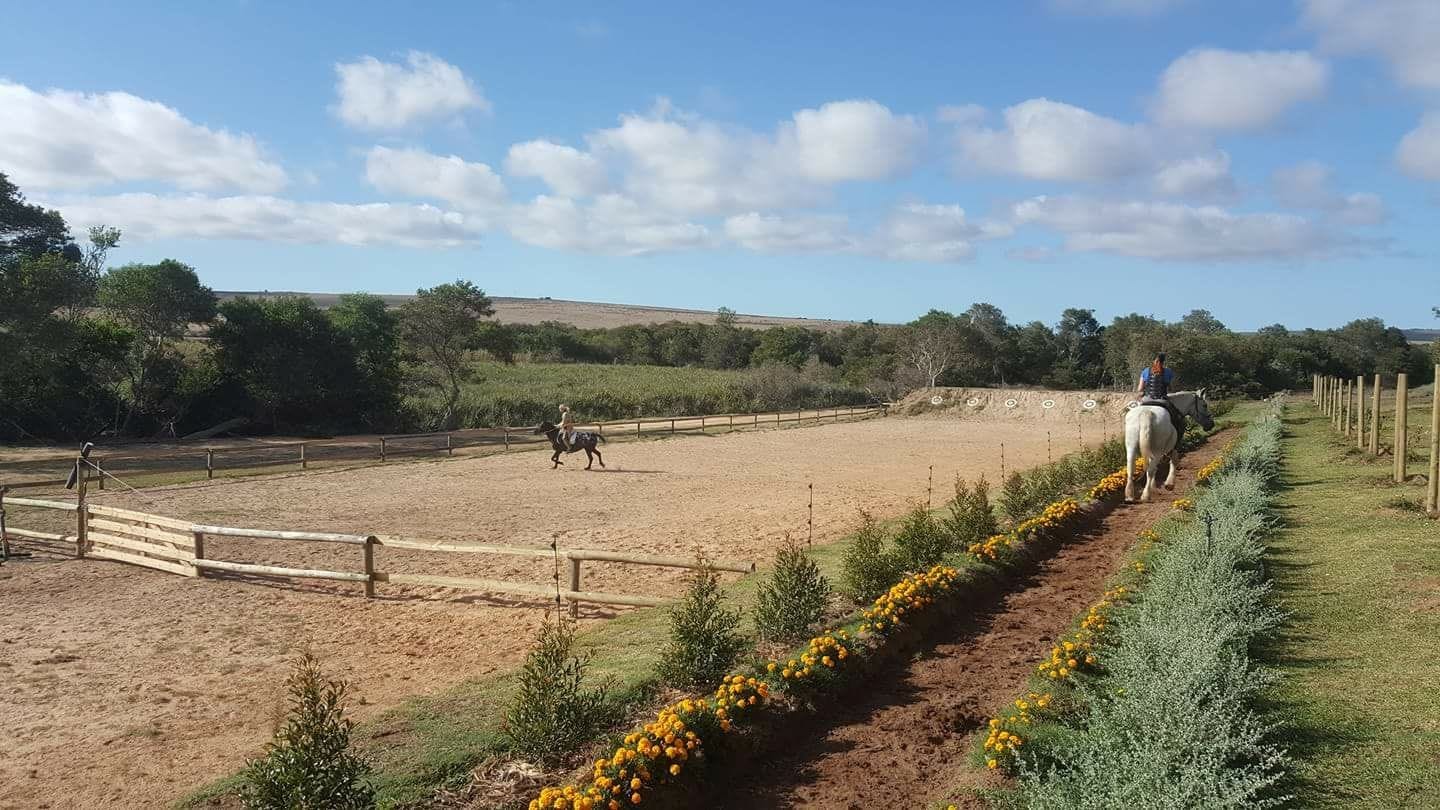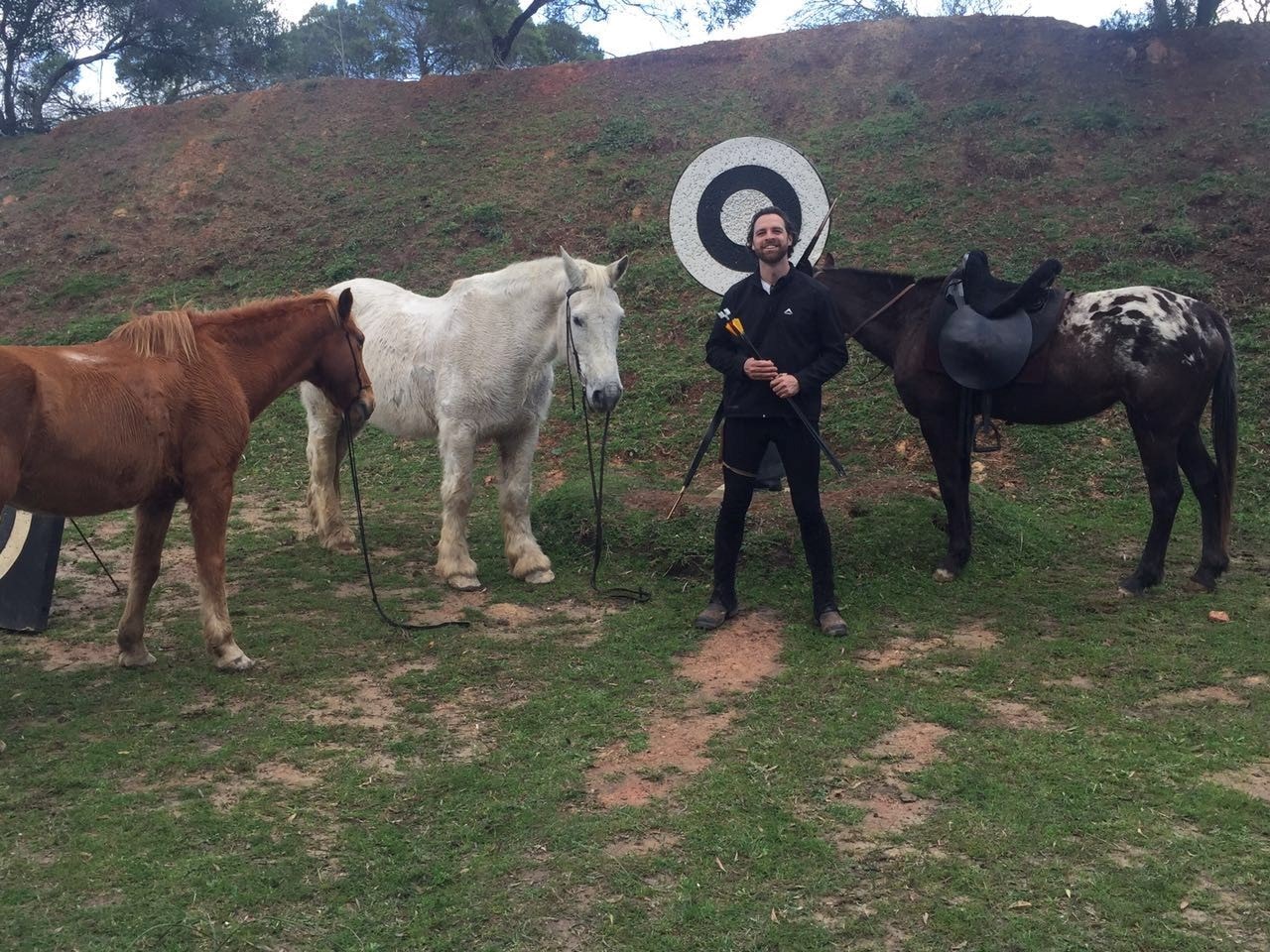Griffin Horse Archery takes students and visitors on a unique training experience set in the Overberg region, one of the country’s most scenic areas. This farm-based training center boasts of world-class facilities, with fair weather and lookout points overlooking the ocean.
Hungarian Horse Archery in the Overberg Region
Griffin Horse Archery opened in 2012 shortly after South Africa’s Daniel Griffin met Lajos Kassai in competition earlier in the year. Lajos Kassai is one of the world’s most skilled contemporary mounted archers, and integral for turning traditional horseback archery into an international competitive martial art.
In the 2012 competition, Daniel Griffin captured victory in one of the three main styles. He believes that earned him an invitation to Lajos Kassai’s horseback archery school in Hungary. “It is a closed school that is very difficult to get in,” Griffin says about the tough entrance and membership exams.

The mentorship Griffin received in Hungary motivated him to return to South Africa and start his school. He set up in the coastal Overberg region, just over an hours’ drive from Cape Town. “Kassai has very much taken me under his wing in what he taught me,” says Griffin, “and in what I’ve implemented here with Griffin Horse Archery in South Africa.”
While Griffin still returns to Hungary once a year, his South African school has grown exponentially every year. Now at seven years old, Griffin Horse Archery has become a world-class facility with specialty horses, top of the line stables, an international competition track, professional scoreboards, team accommodation, and more. Today it is the only facility of its kind in the country and one of few in the world, says Griffin.
Training for an Equestrian Martial Art
A Kassai competition track is 99 meters long with a single 90cm target set 9 meters away from the middle. “You have 19 seconds to pass in this 99 meters,” says Griffin, “so basically in that gallop which takes 19 seconds you have to shoot as many arrows as you can into the target”.
Rather than shoot patiently at stationary targets, horseback archery emphasizes the speed and dexterity needed in combat. Unlike traditional archery of hunting, horseback archery was primarily practiced as a martial art by the Turks, Japanese, and Ottomans.
The mounted archers of Atilla the Hun and Genghis Khan used horseback archers as fierce warriors in the front lines of battle. This martial lineage distinguishes horseback archery from most other bow and arrow sports.
Students train one full weekend per month at Griffin. “Usually on a weekend training camp we will train Friday afternoon,” Griffin says, “and then on a Saturday we will work and then we will train.” This Saturday morning work-session is especially important. Students trim hedges, rake the track, groom the horses, and help around the farm.

“In the Kassai school, you do work every time before you train,” Griffin insists. This keeps archers fit, and becomes a form of conditioning. “You work so that you are already tired even before you start training,” Griffin explains, “so when you actually have a competition day, and you don’t do the work beforehand, you are more alert and ready.”
Griffin doesn’t rely on the labor of the students as he has full-time employees that maintain the farm. “The more important thing,” he explains, “is that the horseback archers feel a part of the facility and that they feel like they’re giving something back that is not just money.” This is central to the philosophy of the school.
“The equestrian world is very much financially dominated,” he says. Griffin doesn’t want money to determine whether students can join his school or not. “So for me to open my doors to outsiders, I’ve done it in a way that doesn’t require a huge amount of money. But it requires dedication and commitment.”
International Visitors
On the last day of a training weekend, Griffin’s students partake in a competition. “That competition,” says Griffin, “will either be a national qualifier or an international horseback archery grading.” Because of the established facilities on the farm, Griffin can host national qualifiers as well as international competitions. Griffin hosts world cup ranking tournaments twice a year and usually invites several international horseback archers to South Africa.
“I’ve had many people from all over the world training here,” says Griffin.
Twice a year he also offers ten-day international training camps. “So basically, I offer airport transfer, three meals a day, and we do about six hours of training a day.” During this stay, Griffin takes visitors out on horseback rides to see the countryside.
Part of what makes Griffin Horseback Archery such a destination for international horseback archers is its location. Riding to the top of the farm, you see Cape Aghulus, the Southernmost tip of Africa, where the Pacific and Atlantic oceans meet.

The Overberg region is amongst the most scenic in South Africa. Just down the road, you will find one of the world’s top whale-watching locations, while indigenous and unique fynbos fauna abounds, something you won’t see anywhere else in the world.
“One of the big draw cards as well is the weather,” says Griffin. He gets a lot of visitors during the South African summer when much of the Northern Hemisphere experiences sub-zero winter. Under the African sun and open sky, international archers from countries such as Canada and Poland can keep on training without needing much more than a light jersey for the cool summer evenings.
There is a lodge on the farm that Griffin can book for visiting teams or during a tournament, and he also has a little cottage “that is purely for my students or visiting international horseback archers.”
Some visitors come for a weekend, others for a couple of weeks. Some, Griffin says, come to train at Griffin Horse Archery for two months at a time. “And I don’t put myself forward as a master or teacher,” Griffin admits. “The idea is that we all train together and learn together.” It is this ethos, more than anything, that makes Griffin Horse Archery an inviting destination.
You can find out more about the Griffin Horse Archery school, or even contact Daniel Griffin directly, on their Facebook page.
